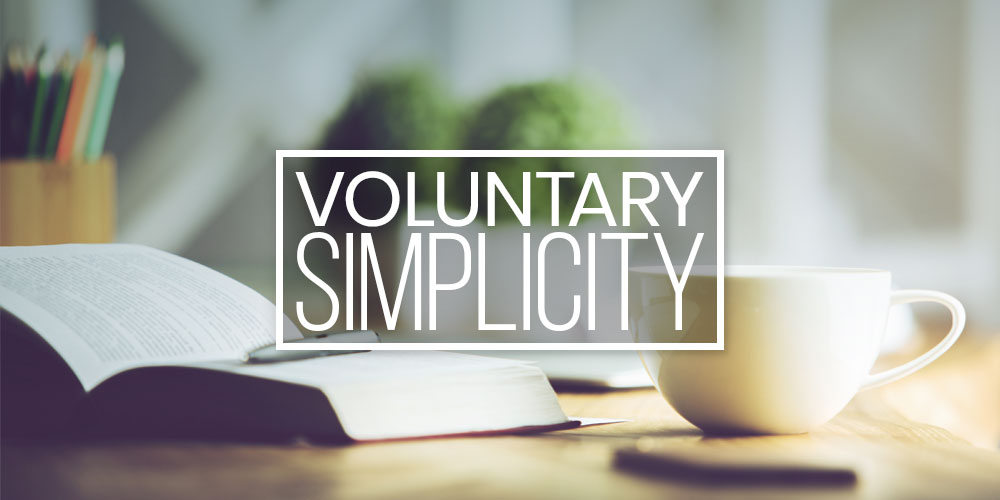
NAVIGATION
Do you feel overwhelmed with life or disconnected from the people, values, or belief systems around you? Voluntary simplicity helps. It takes the idea behind simple living, a conscious decision that you make, and brings that philosophy to encompass every part of your life. It’s an intention that leads to specific outcomes and gives you more control over the way you spend your days and your life.
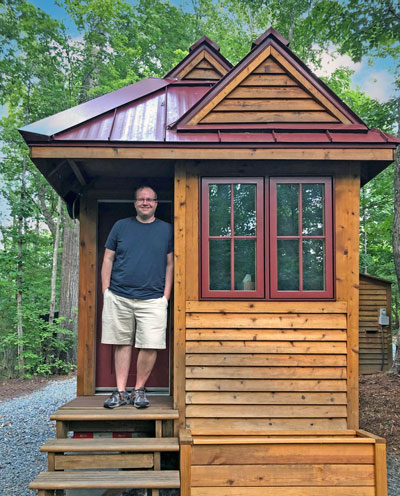
Hi, I’m Ryan
Hi, I’m Ryan. I’m excited by voluntary simplicity because it allows me to take so many different simple living philosophies and combine them. It’s fascinating to see how so many areas of our lives connect and how we can use these connections to live simply and beautifully.

What Is Voluntary Simplicity?

Voluntary simplicity is a lifestyle choice that, at its core, minimizes the need to mindlessly consume material goods. It recognizes that pursuing wealth for its own sake often leads to overwhelm or straight-up misery. Voluntary simplicity is connected to simple living but branches out to other movements and philosophies.
Ultimately, if you want a less complicated and more meaningful life for yourself and your family, this is the perfect path to explore.
Origins And Connections
Today, movements around different styles and focuses of slow living deliver individual, but intertwined, benefits. There’s slow food, that promotes local food and traditional cooking, bringing simplicity into the kitchen and the way we eat.
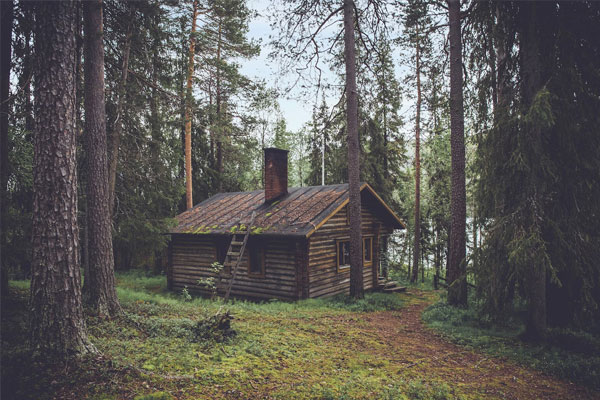
There’s also the concept of slow medicine, encouraging doctors to take more time with patients to choose only the necessary care, promoting voluntary simplicity in healthcare. And slow living overall, such as how we work, encourages a more thoughtful approach to aspects of everyday life.
Benefits Of Voluntary Simplicity

Voluntary simplicity involves both your inner and outer life. It allows you to honor your singleness of purpose and engage in honest dialogue with yourself while avoiding exterior clutter and keeping your space peaceful. The value of voluntary simplicity shows up in both expected and unexpected ways.
Balance
Work and rest are equally important, so being frugal with your time makes just as much sense as being frugal with your money. Voluntary simplicity allows you to prioritize meaningful work and enjoy extracurricular activities. Choosing activities that bring joy and reducing activities that bring unhappiness enriches your life and promotes balance.
De-Growth
Degrowth on a global level reframes humanity’s goals to counteract climate change. On a personal level, it allows human beings to do their part by dramatically scaling back the amount of energy and resources they use. By doing this, you provide a living example that one person can indeed make a difference.
Underconsumption
We don’t need a lot to be happy and healthy. Owning and consuming less rather than more helps us recognize what is essential. We get to know ourselves and, as a result, we feel less stress, save more money, enjoy more productivity, discover more freedom, and reward ourselves with more time with the people and activities that matter most.
Harmony
Those who follow a voluntary simplicity lifestyle report more harmony with the environment and physical world. This might be because they’ve reduced their dependency on institutions they disagree with or cannot control. This includes corporations, government agencies, agricultural or food businesses, and so on. Instead of feeling frustrated, this encourages feelings of self-reliance, awakening, and ecological harmony.
Eco-Friendly
Part of the problem of pollution and biodiversity loss is caused by overconsumption. Voluntary simplicity might be the antidote. After all, environmental degradation threatens our very existence. That’s why I try to be eco-friendly in everything I do, from building and sustaining off-grid living to eating local and homesteading.
Voluntary simplicity is a way to consume sustainably when we make a conscious decision to minimize how we use and accumulate goods and services. We walk instead of drive, use a clothesline instead of a dryer, and drink water out of a canteen rather than purchase plastic water bottles at the store.
“Simplicity is the ultimate sophistication.”
– Leonardo Da Vinci
Voluntary Simplicity Examples

How do you feel when you wait 25 minutes in line at the post office only to be told you filled out the wrong form and have to start over? What goes through your mind when you need a mask to breathe because of wildfires hundreds of miles away? We feel frustrated and disconnected from our communities in a variety of ways that have us calling out for solutions.
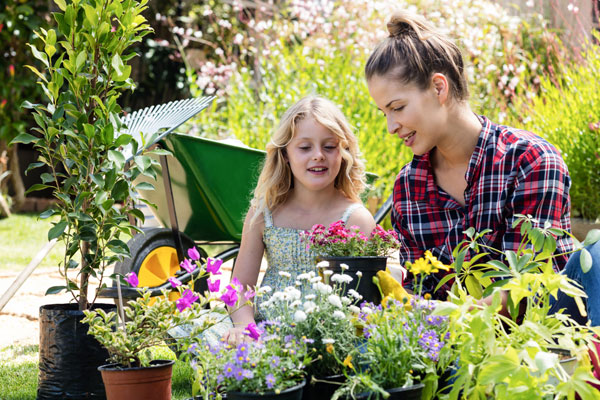 We want to celebrate the unique personality in each of us. That includes making homemade crafts, using vintage or simple products, and belonging to a community of like-minded folks. Many of us want to simplify our lives to feel better but also to actively resist the pull to disconnect from others.
We want to celebrate the unique personality in each of us. That includes making homemade crafts, using vintage or simple products, and belonging to a community of like-minded folks. Many of us want to simplify our lives to feel better but also to actively resist the pull to disconnect from others.
How can we improve our everyday experiences? Is there a way to fight corporate greed and environmental catastrophe while enjoying more fulfillment and satisfaction on a personal level? These voluntary simplicity examples help us do just that.
Grow Your Own Garden
I love homesteading and growing my own food. There is a lot of joy to be discovered when you rely on yourself. Growing your food in your backyard or on your balcony also means you’re helping the environment.
Benefits of Growing Your Own Food
- You’re more self-sufficient
- Increasing the amount of food you eat or give to others
- Boosting nutrition without pesticides or herbicides
- Decreasing waste because you’re not using plastics or containers from a store
- Helping the planet by reducing water pollution and the need for fossil fuels
Consider Exploring A Vegetarian Diet
Eating a plant-based diet benefits the environment and your health at the same time. While this isn’t the right path for me, I have lots of vegetarian friends who’ve adopted this lifestyle and love it.
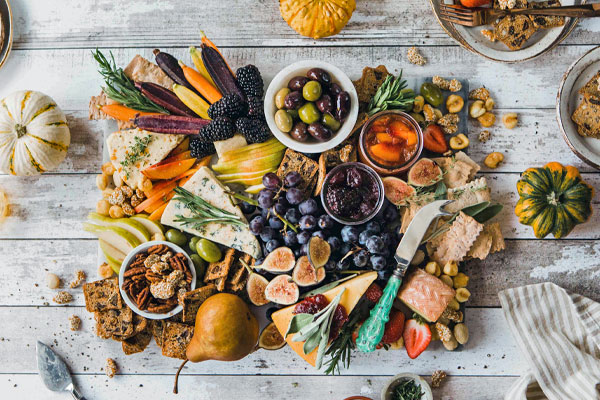 Breeding animals for food means more greenhouse gases, carbon emissions, and land used primarily for grazing. We destroy much-needed wildlife habitats and forests and pollute fresh waterways with animal byproducts and waste. That’s a lot of destruction.
Breeding animals for food means more greenhouse gases, carbon emissions, and land used primarily for grazing. We destroy much-needed wildlife habitats and forests and pollute fresh waterways with animal byproducts and waste. That’s a lot of destruction.
Reducing meat intake is one of the best ways we can help combat global warming and slow climate change. You don’t have to completely give up meat to make a difference. Some people instead choose to keep their home meat-free and treat themselves once a week to an “anything goes” dinner out. Others observe “meatless mondays.” Eating a meat-free meal once a week or more helps reduce pollution of our drinking water, rivers, and oceans.
Reduce, Reuse, Repair, And Recycle
Some people add another R to this list: refusing. Either way, recycling is last for a reason. Before we recycle, we should find ways to reduce or refuse a new purchase altogether. Consider the fossil fuels it takes to get the product to you, all that excess packaging, and the reality that cheap goods don’t last.
Too often we buy things we don’t need. Repairing what we already have and making it last can give us and our possessions a new lease on life!
“Be here now.”
– Ram Dass
Mindfulness
Sometimes we need some inspiration to regularly practice mindfulness. When we do this, we help manage our stress, cope better with surprises, and reduce anxiety and depression. Many of us also experience a heightened ability to relax, more enthusiasm for life, and increased self-esteem.
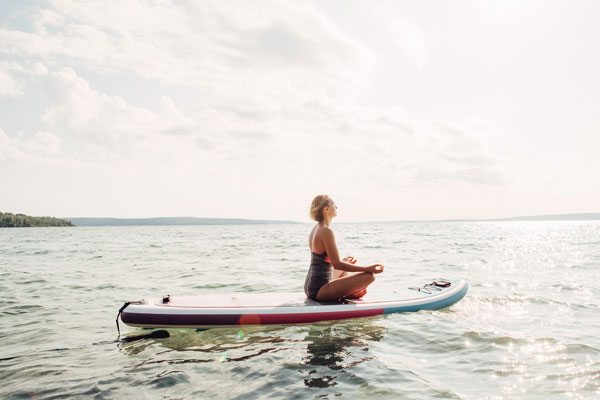 Sustained happiness takes being here now — staying present, even while doing everyday things like watching TV, shopping, enjoying yourself, and generally building your life.
Sustained happiness takes being here now — staying present, even while doing everyday things like watching TV, shopping, enjoying yourself, and generally building your life.
In other words, it means staying present all the time. When you find your mind drifting to the past or the future, don’t judge yourself. Just be aware of it and gently bring your awareness back to your breath and the present. It’s as simple as that!
Now this isn’t to say you shouldn’t ever reminisce or plan ahead — on the contrary. It’s important to process the past and prepare for the future, but try to set aside specific time to do so. This will make it easier to focus on the present the rest of the time.
Lifelong Learning
Stay open-minded and curious by educating yourself, long after your formal education has ended. Continued education is good for your brain and can increase cognition as you get older. It improves your mental well-being and self-esteem. Lifelong learning also benefits your career and allows you to improve practical skills while keeping pace with advances in technology.
Voluntary Simplicity Tips

As you incorporate this philosophy into your life, remember that practice makes you better! You’ll soon feel great living deliberately and wonder how you ever did it any other way. Going through life on autopilot, mimicking the norms of a materialistic culture that doesn’t reflect your norms or values, has a price. Embrace the difference.
Here are some voluntary simplicity tips that include slow living and self-care suggestions. This can help you achieve a more successful transition on your way to a different kind of lifestyle. Changing habits can sometimes be challenging. When this happens, review what truly matters to you and take it one step at a time.
Consume Less
We can’t completely erase consumption from our lives, but we don’t need to over-consume. We enjoy life more by deliberately rejecting excess. Do this by slowing down, organizing your stuff, being aware of advertising triggers, and avoiding purchasing on credit.

Work Fewer Hours
A better work-life balance can also increase motivation and focus while at work. If employees have less time to complete tasks, they tend to collaborate with co-workers in healthy, harmonious, and more productive ways.

Reduce Your Stress
When we prevent and manage detrimental stress it lowers our risk for complicated conditions like heart disease, high blood pressure, obesity, and depression. Make exercise, breathwork, mindfulness, meditation, decluttering, and spending time outside part of your routine.

Take Up Less Space
When I decided to build and move into my own tiny home, it completely changed my outlook, way of living, and improved my finances. Moving into a smaller space requires you to let go of your belongings and downsize. There’s no other way!
Not sure where to begin? Start by decluttering your home and emptying a room or two to see how it feels. Donate items you don’t need or use. Throw away what’s broken or no longer serving you. Get rid of duplicate possessions.
After you do this with one or two rooms, apply the effort to your whole home.
Increase Your Freedom
When you’re taking the philosophy of voluntary simplicity and applying it to your life, you’ll increase the amount of time you spend doing what you love. Reduce distractions, increase value, and enjoy more freedom.
You Can Choose Voluntary Simplicity In Your Life

Choosing voluntary simplicity means intentionally stripping away what’s unnecessary and excessive. Like simple living, it’s about learning how to do things for yourself. Self-sufficiency is inspiring as you learn more ways to prove you are capable!
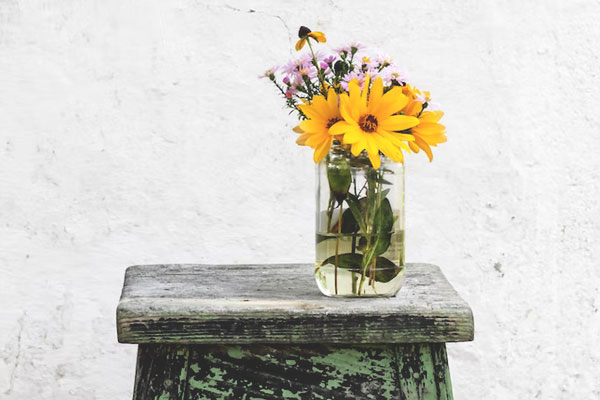 Apply frugality to your resources while reducing and eliminating debts. Spend more time doing what you love. You’re not in this alone. Browse some books that will help further guide you in this endeavor and don’t be afraid to apply your personal philosophies as you go along. It’s your life after all!
Apply frugality to your resources while reducing and eliminating debts. Spend more time doing what you love. You’re not in this alone. Browse some books that will help further guide you in this endeavor and don’t be afraid to apply your personal philosophies as you go along. It’s your life after all!
Voluntary simplicity is about more than how you live. It’s also about the way you live and interact with those around you. It may start with downshifting and lead to organizing and decluttering, but it’s also about sustained happiness and living an authentic life according to your values.
Your Turn!
- What daily activities bring you joy?
- Which voluntary simplicity tip do you want to try first?




Hi Ryan,
Enjoyed you your article. It’s a sobering fresh breath of air from the dystopian “experts” normally dominating these topics